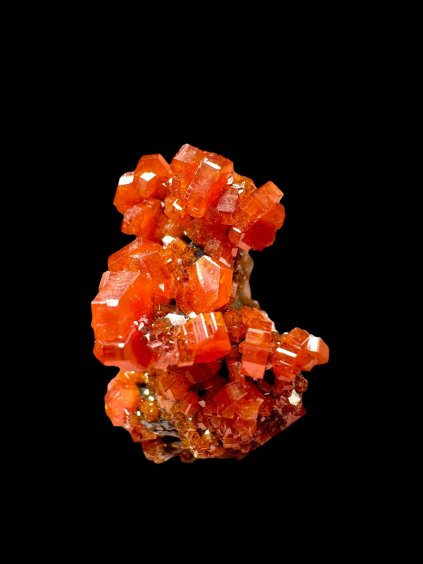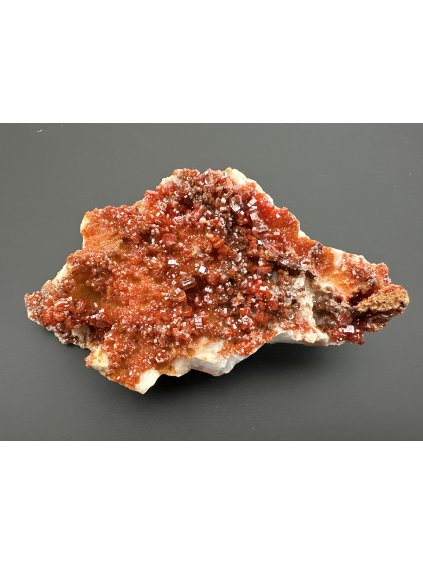Vanadinite
Vanadinite is a mineral belonging to the group of phosphates, arsenates and vanadates, which is characterized by its high concentration of vanadium. It is one of the most important ore minerals of this element, which makes it of significant economic use. Vanadinite forms mainly in arid (dry) areas in the oxidation zones of lead deposits.
#ShowMore#
Characteristics and appearance
Vanadinite has the chemical formula Pb₅(VO₄)₃Cl and its principal constituents are lead, vanadium and chlorine. It also contains minor amounts of phosphorus and arsenic, which may partially replace vanadium in its structure. It typically occurs in shades of red, orange, brown and sometimes yellow. The colour depends on the vanadium and trace element content of the mineral. Vanadinite forms hexagonal (hexagonal) crystals that are often perfectly developed. It can also form stellate, granular or massive aggregates. Vanadinite crystals have a high glassy to diamond-like luster, which contributes to their attractive appearance and popularity among mineral collectors.
Locations
Vanadinite occurs mainly in dry, oxidised lead deposits, especially in Morocco, where some of the finest specimens have been found. Other important localities are Mexico, Argentina, Namibia, and the United States (e.g. Arizona).
Composition
Vanadinite often forms beautiful compositions with barite, creating very aesthetic collectible specimens. In some cases, the barite, which is usually white or yellowish, may be covered with manganese salts. The manganese salts give the barite dark brown to black hues, creating a contrast with the vanadinite crystals. These crystals typically occur in bright red or orange, creating a visually attractive combination of

















